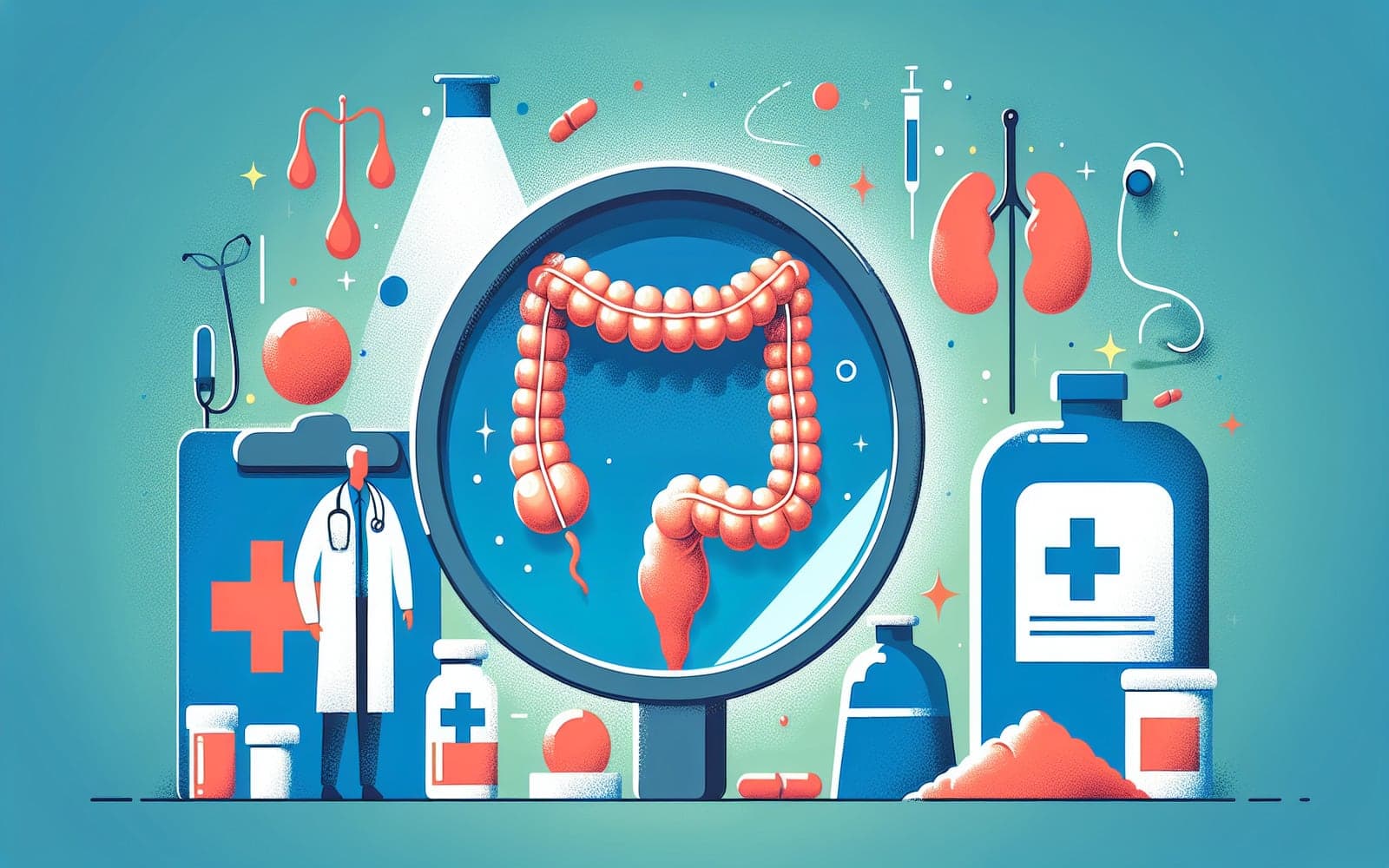What's the Deal with Diverticulosis? The Surprising Truth About Those Colon Pouches
Published: Oct 19, 2023
Diverticulosis is a common condition where small pouches form in the wall of the colon. While it affects over half of people over 60, many don't even know they have it.
Contents
Who Gets Diverticulosis?
Diverticulosis becomes more common as we age. Less than 20% of 40-year-olds have it, but by age 60, that jumps to 60%. It's more common in men and in white people. Interestingly, it tends to occur on the left side of the colon in Western countries, but on the right side in Asian countries.
Surprising Risk Factors
You might think a low-fiber diet causes diverticulosis, but recent studies suggest that's not true. The real culprits? Being overweight, smoking, and lack of exercise seem to increase your risk. Genetics may play a role too - if your twin has diverticulosis, you're more likely to develop it.

How Diverticulosis Develops
Diverticula form at weak spots in the colon wall, often where blood vessels pass through. It's like a weak spot in a garden hose that bulges out under pressure. Changes in the colon's muscle contractions and connective tissue as we age may contribute. Some researchers think changes in gut bacteria might be involved too.
Frequently Asked Questions
Usually not, but complications can occur in some people.
Most people with diverticulosis don't need any treatment.
Maintaining a healthy weight and exercising may help reduce risk.
No, studies show these foods don't increase complications.
The Bottom Line
While diverticulosis is common, it's usually harmless and doesn't require treatment in most people.
References
- Peery AF, et al. Distribution and Characteristics of Colonic Diverticula in a United States Screening Population. Clin Gastroenterol Hepatol 2016; 14:980.
- Peery AF, et al. A high-fiber diet does not protect against asymptomatic diverticulosis. Gastroenterology 2012; 142:266.
- Strate LL, et al. Heritability and familial aggregation of diverticular disease: a population-based study of twins and siblings. Gastroenterology 2013; 144:736.
- Barbara G, et al. Gut microbiota, metabolome and immune signatures in patients with uncomplicated diverticular disease. Gut 2017; 66:1252.
This article has been reviewed for accuracy by one of the licensed medical doctors working for Doctronic. Always discuss health information with your healthcare provider.
AI Doctor Visit Required
Appointments available 24/7
15-min consultation. No hidden costs.
AI Doctor Visit Required
For safety reasons we have been forced to end this consultation.
If you believe this is a medical emergency please call 911 or your local emergency services immediately.
If you are experiencing emotional distress, please call the the Suicide & Crisis Lifeline at 988 or your local crisis services immediately.
Contact us
You can also email us at help@doctronic.ai
We aim to reply within 5-7 days
How likely are you to recommend Doctronic to friends or family?


